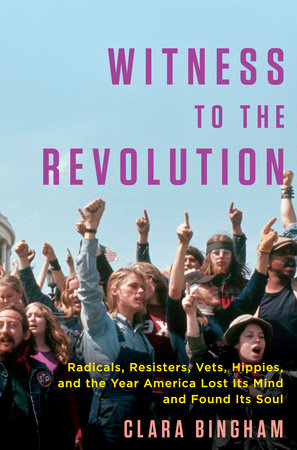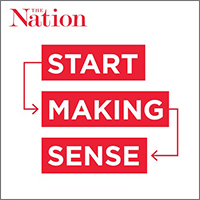 Political science tells us Hillary Clinton will win the election—the poll numbers are so clearly in her favor. As of this moment, the authoritative FiveThirtyEight “polls only” forecast says Clinton’s chance of beating Trump is 86.6 percent. But polling is an inexact science, and a lot of pundits are asking: Could the polls be wrong this time?
Political science tells us Hillary Clinton will win the election—the poll numbers are so clearly in her favor. As of this moment, the authoritative FiveThirtyEight “polls only” forecast says Clinton’s chance of beating Trump is 86.6 percent. But polling is an inexact science, and a lot of pundits are asking: Could the polls be wrong this time?
. . . continued HERE
An Hour Without Trump: The Nation podcast 8/4
rump is everywhere in the news this week, so we decided to do something different: 60 minutes of political talk that is Trump-free. Guaranteed. Instead:
 The fight to limit government surveillance tactics: Ben Wizner talks about what we have won—and what we need to do next. He’s director of the ACLU’s Speech, Privacy, and Technology Project and the lawyer for Edward Snowden.
The fight to limit government surveillance tactics: Ben Wizner talks about what we have won—and what we need to do next. He’s director of the ACLU’s Speech, Privacy, and Technology Project and the lawyer for Edward Snowden.
Plus: Susan Faludi tells the story of a transgender woman—her father, who transitioned when she was 76. Susan, of course, is the Pulitzer Prize–winning author of Backlash: The Undeclared War Against American Women. Now she has a new book out; it’s called In the Darkroom.
 And Tom Lutz has been traveling a lot; he went to Lhasa to talk about Tibetan resistance to China; he went to Jordan to talk about Iran and America; and he went to Tehran to talk about the Kurds.
And Tom Lutz has been traveling a lot; he went to Lhasa to talk about Tibetan resistance to China; he went to Jordan to talk about Iran and America; and he went to Tehran to talk about the Kurds.
His new book is Drinking Mare’s Milk on the Roof of the World.
Remembering the Sixties: KPFK 8/2

Clara Bingham talks about her oral history “Witness to the Revolution: Remembering the Sixties”–she interviewed 100 people–the famous and the unknown.
Calvin Trillin of The Nation and The New Yorker remembers reporting from Mississippi in the sixties: his new book is “Jackson 1964.”
Plus award-winning documentary filmmaker Alex Gibney has the scary story of the Stuxnet virus and the future of cyber war: his new film is “Zero Days.”
And Amy Wilentz talks about gender in politics today: the masculinity of Donald Trump, the feminism of Ivanka Trump, and all those terrible things they say about Hillary’s voice, smile, and body.
Ivanka & Hillary: Amy Wilentz on TheNation podcast 7/29
ohn Nichols analyzes Hillary Clinton’s big speech and the place of Bernie Sanders supporters in Democrats’ plans to fight Donald Trump.
and D.D. Guttenplan reports on Bernie and the Bernie people at the convention—the battles, the booing, and the work to keep the movement alive after November.
Can Trump Win? The Republicans After Cleveland: The Nation Podcast 7/22
my Wilentz and I debate Trump’s chances for victory in November: I say he won’t win; Amy says, “Don’t be so sure.”
Plus: John Nichols and D.D. Guttenplan analyze the aura of violence inside the convention hall, and what it says about the Republicans—and the rest of us.
And George Zornick reports on the action in the streets–there wasn’t a lot– and the treatment of demonstrators–and the media–by the Cleveland police.
Sick and Tired of Hillary’s Email? It’s not over yet. TheNation.com, 7-19
Republicans are doing everything they can to keep Hillary’s e-mail in the news. And now they have a new front in their campaign: They’re arguing that Clinton violated the Freedom of Information Act (FOIA) by storing official information on her private e-mail servers.
Read at TheNation.com, HERE
Philando Castile, Alton Sterling, and Barack Obama: The Nation podcast 7/14
Listen HERE
The shooting of police officers in Dallas does not change anything about the shootings of black men in Baton Rouge or St. Paul, Kai Wright argues—he’s features editor of The Nation.
Also: Donald Trump has changed the Republican Party in fundamental ways, says Harold Meyerson of The American Prospect, and it may never recover.
And Clara Bingham talks about how the 1960s changed America, starting with young Hillary and young Bernie. She interviewed 100 people for her new book, Witness to the Revolution.
Clinton’s Email, the FBI, and the Voters: The Nation podcast 7/7
 Listen HERE
Listen HERE
oan Walsh says FBI Director James Comey’s blunt criticism of Hillary Clinton’s handling of her e-mail provides the presidential hopeful with an opportunity to acknowledge her mistakes and to make amends. Walsh is The Nation’s national affairs correspondent.
 Plus, we found something else to worry about: cyber attacks on the US paralyzing our electric grid and our water supply. The award-winning filmmaker Alex Gibney has a new documentary about that, called Zero Days—it opens this Friday.
Plus, we found something else to worry about: cyber attacks on the US paralyzing our electric grid and our water supply. The award-winning filmmaker Alex Gibney has a new documentary about that, called Zero Days—it opens this Friday.
Also: Ben Ehrenreich and Amy Wilentz talk about about life for Palestinians in the West Bank. Wilentz is a contributing editor at The Nation, and Ehrenreich’s new book is The Way to the Spring: Life and Death in Palestine.
And A Prairie Home Companion is ending its long run on public radio—Garrison Keillor explains that the secret of the show’s success was “no competition.”
The Brexit Vote Highlights Clinton’s Vulnerability: The Nation podcast 6/30
he victorious campaign in Britain to leave the European Union has many striking parallels to Donald Trump’s campaign to win the White House. D.D. Guttenplan says “that ought to keep Hillary supporters awake at night.”
Also: the Supreme Court issued a sharp rebuke to Texas’s anti-choice laws on Monday in the most sweeping victory for abortion rights in 25 years. Zoë Carpenter comments.
Plus: A test case of Republican vs. Democratic rule in two states. Minnesota and Wisconsin have taken opposite approaches to voting rights, and some other things too—and the results are now clear. Ari Berman explains.
Could Donald Trump Ban Muslims? TheNation podcast 6/23
he People’s Summit brought organizers and activists to Chicago last weekend for three days of planning about where to go next with the Bernie movement—at the Democratic National Convention, and after. RoseAnn DeMoro, executive director of National Nurses United, weighs in.
Plus: lessons for the left from the NRA in the wake of the Orlando shootings: David Cole, The Nation’s legal affairs correspondent, argues that gun control advocates can win if they focus on state laws rather than Supreme Court challenges. His new book is Engines of Liberty.
 LISTEN
LISTEN  Listen
Listen 
 Listen
Listen  If he were president, could Donald Trump really ban Muslims from entering the country?
If he were president, could Donald Trump really ban Muslims from entering the country? 
